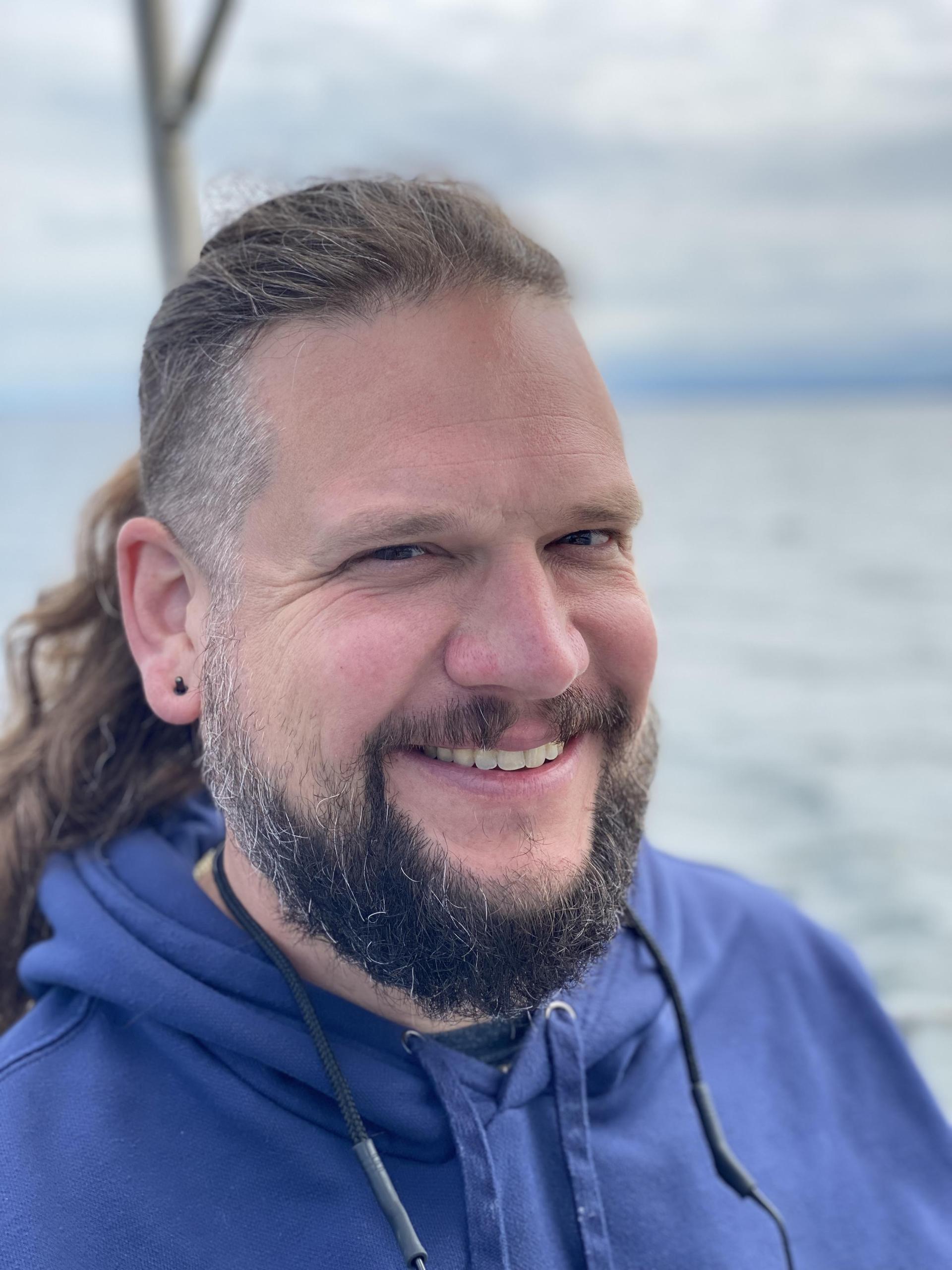Research Report: Changing Tack: Equity, Maritime Labor, and Offshore Wind in the Pacific Northwest
This research was funded by the Washington State Labor Research Grant of the Harry Bridges Center for Labor Studies.
Report written by grant recipient Kurt Ellison, MMA
Offshore wind has been proposed as a possible clean energy solution to meet the challenges of new energy development. During the Biden Administration, ambitious policies were championed to accelerate offshore wind in the United States, including the waters off the West Coast. Focusing on combating climate change, advancing clean energy, and creating jobs, the Administration aimed to deploy 30 gigawatts of offshore wind capacity by 2030. The Administration also adopted a “whole of government” approach to advancing equity for historically marginalized and underserved groups.
Tasked with executing these ambitious projects, workers on the docks and at sea will face changes in their work environment due to offshore wind. With reference to a chain of equity-based policies at the federal, state, and local levels, this research argues that offshore wind and blue economy development must be viewed through an equity lens, including the impacts on workers. The study utilized in-depth interviews to assess workers' perspectives on offshore wind development in the Pacific Northwest.
Through a “just transition methodology,” the project centered the perspectives and experiences of maritime workers to evaluate the prospects and practices of labor equity within offshore wind development. The interviews add nuance to our understanding of existing challenges facing maritime labor while attempting to address emerging issues due to new maritime development projects associated with a potential clean energy transition. Workers discussed existing inequities, job security, opportunities for advancement, and their broader visions of the blue economy and just transition. By interviewing workers engaged in ports and staging, maritime construction, and the operation and maintenance of wind projects, this project contributed to the growing discussion around offshore wind, equity, and public policy that strives toward a just transition while also suggesting policy changes that can help create a more equitable work environment for maritime workers under the federal policy directives.
This project builds upon the growing body of work surrounding offshore wind development by using criteria from the literature of equity, precarious labor, decent work, and just transition in direct dialogue with maritime workers’ perspectives. Findings from this study could help inform policy development in Washington State on offshore wind and ocean energy projects in direct support of the state's climate goals. The findings could also help to inform policy development in emerging maritime and energy sectors.
Key findings and policy recommendations focused first on addressing existing issues within respective industries, including workforce development through continuing education support, work schedules that provided a better work/life balance, increased support for underrepresented communities, and generally policies that reduce uncertainty in the workplace. In terms of ocean energy policy recommendations, interview results strongly support the inclusion of maritime workers from the earliest planning stages. Given the timeline of these potential projects, particular focus should be given to early-career workers. Additional steps to create career-spanning jobs that avoid traditional energy sector boom-and-bust cycles are also highly recommended.
Since completing this research, Kurt has continued to work in the maritime space and is currently focused on sustainable maritime policy in Washington State. As part of his work, he currently sits on the Leadership Committee for the Blue Wind Collaborative, a coalition working to support the strategic development of offshore wind on the West Coast.
People Involved:
Related Topic:
SMEA Currents Article: “Fair Winds and Following Seas: Is Equity in the Breeze?”
